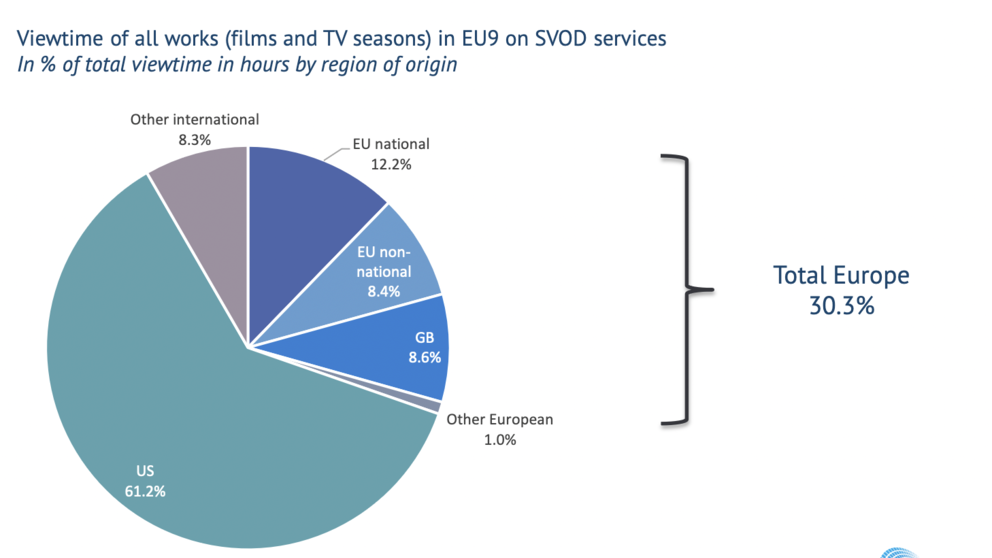Three services - Netflix, Prime Video and Disney+ - account for 85% of viewing time on subscription video-on-demand (SVOD) platforms in Europe, according to a new report from the European Audiovisual Observatory (EAO).
Titled ‘SVOD Usage in the European Union’, the report also found that European works accounted for 30% of viewing time on SVOD services. This comprised 21% for EU content, 9% for UK works and 1% for other European content.

The EAO report also said the figures vary significantly in different countries. In Spain, Italy and Poland, more viewing is dedicated to European content, while in Sweden and Denmark, viewing is more geared towards US works.
The report concluded that US works are systematically overconsumed and European works underconsumed on SVOD services.
US works represented 61.2% of total hours watched. The report also noted the “modest weight of consumption” of works from other regions of the world, with international works accounting for 8.2%.
Among European works, national content is overconsumed in seven out of the nine countries of the sample, whereas EU non-national content is underconsumed in all countries.
This report is based on SVOD viewing time data provided by Goldmedia’s VOD-Ratings in nine EU countries (Denmark, Finland, France, Germany, Italy, Netherlands, Poland, Spain, and Sweden) from September 2022 to September 2023.
You are not signed in
Only registered users can comment on this article.

BBC Group to deliver original content for YouTube
As viewer behaviour reaches a critical tipping point, the BBC Group has struck a deal to produce new programming for YouTube, in an effort to capture younger viewers.

Netflix switches to all-cash offer for Warner Bros Discovery
Netflix has revised its bid for Warner Bros Discovery's studio and streaming business to an all-cash offer.

IBC2026 opens call for technical papers
The call for technical papers is now open for the IBC2026 Conference, which will take place at RAI Amsterdam from 11-14 September.

Lucasfilm President Kathleen Kennedy steps down
Kathleen Kennedy, President of Lucasfilm, is stepping down after 14 years. She plans to transition back to full-time producing, including the studio’s upcoming feature films The Mandalorian and Grogu and Star Wars: Starfighter.

Paramount appoints Reemah Sakaan as President of 5
Paramount has appointed Reemah Sakaan as President of its UK public service broadcaster, 5.


.jpg)

